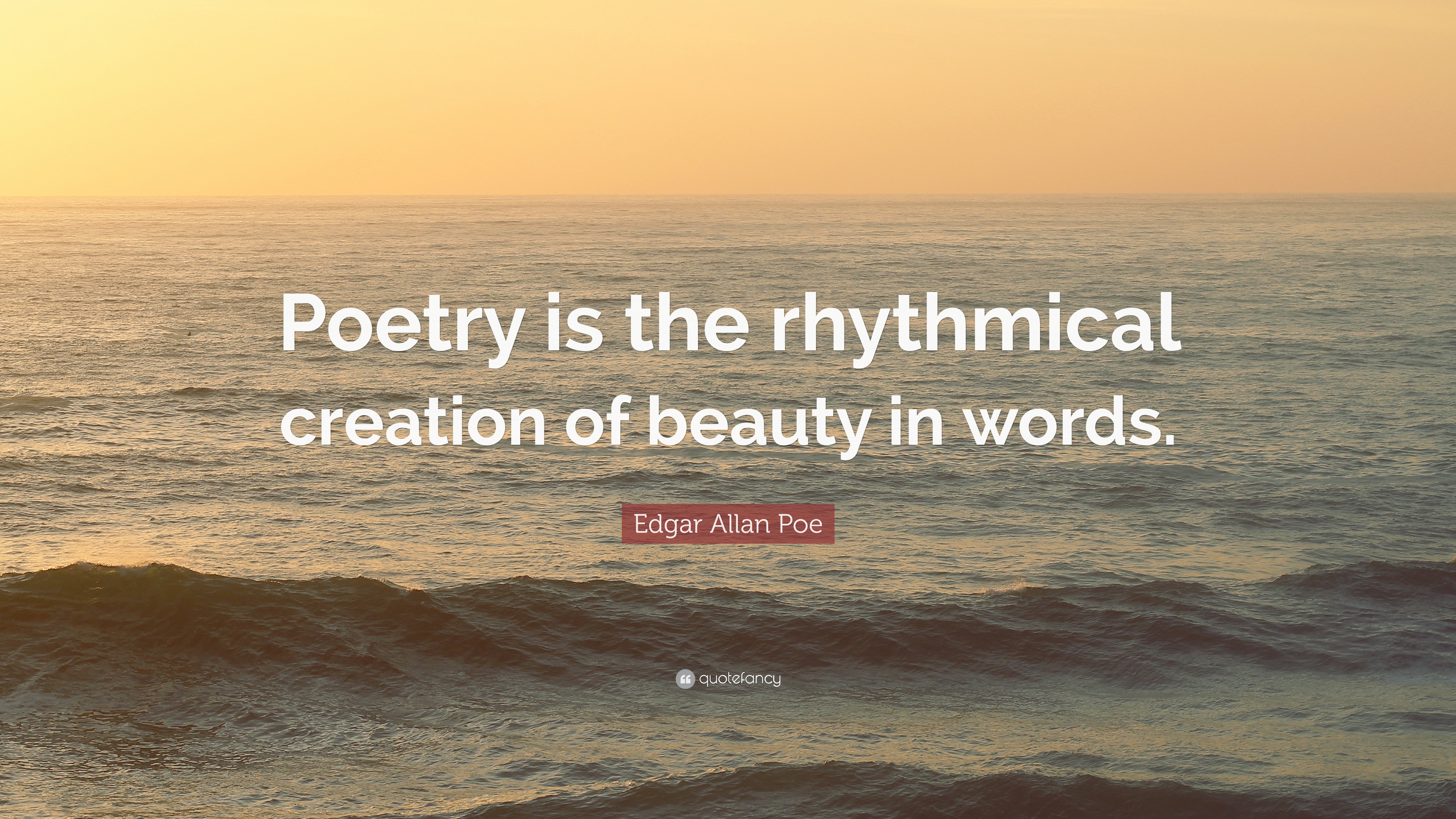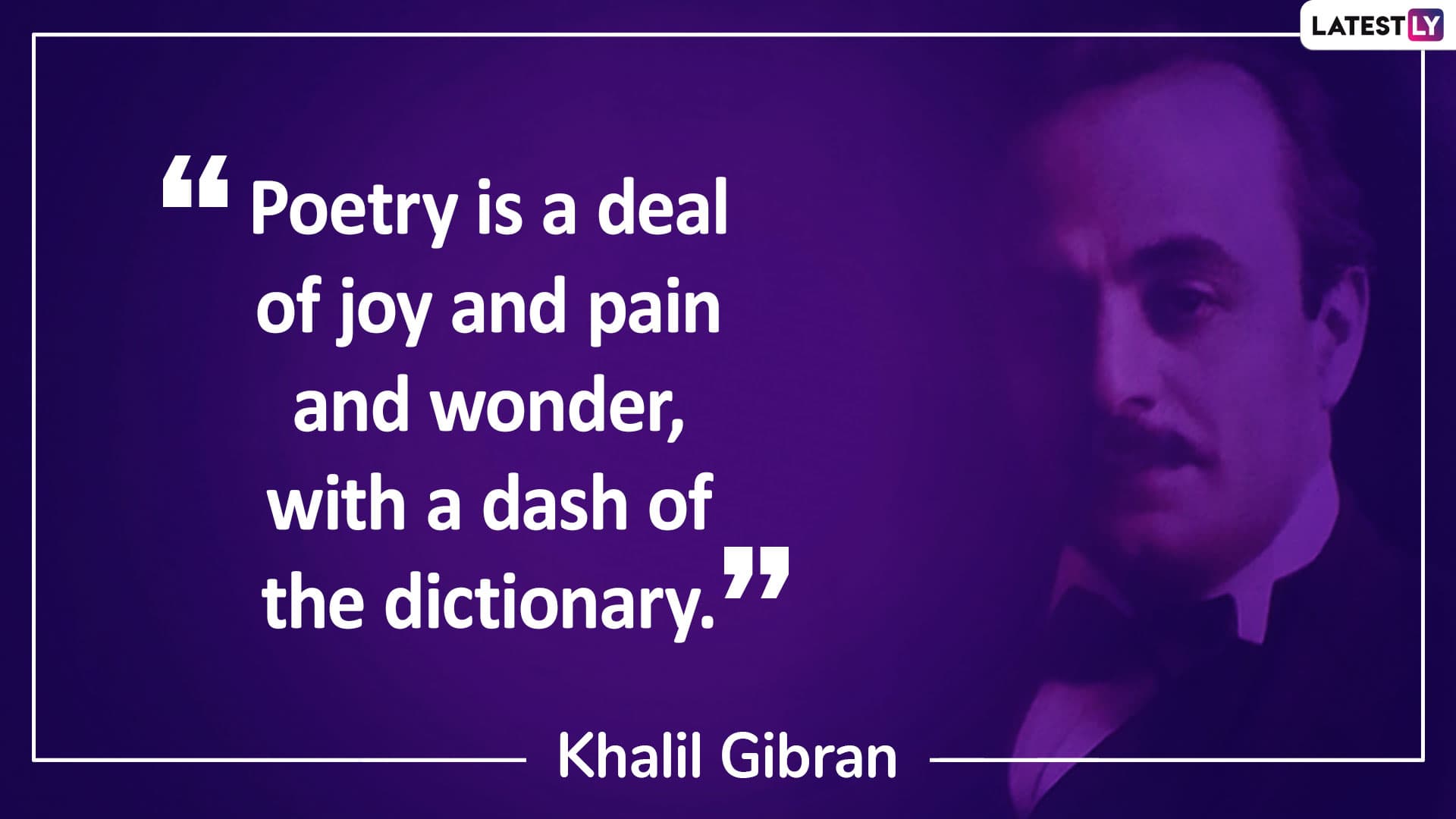The Psyche of Poetry


April is National Poetry Month. I have had a love affair with poetry since I took my first creative writing class as a freshman in college. There is something powerful in sharing one’s innermost thoughts in the written form. There are so many ways to write a poem—so many ways to interpret a poet’s poems. (I am not a firm believer in interpreting poetry, unless that’s the author’s intent). The possibilities are endless. Poetry is not bound by any conventions or rules. Poetry just IS. Poetry is vulnerability as its finest. Poetry is opening yourself to risk—a poem is part of you, heart and soul. Poetry, is you tuning in to that part of yourself to let people in.
I don’t often share my poetry—I write my thoughts and feelings down—more for me than anyone else. On occasion, I will write poetry to gift other people, and even less times, I will use social media platforms to share my works.
I have a million thoughts running through my mind at any time. Poetry is a way for me to sort through those thoughts and then edit and re-edit them. Honestly, it’s a great way for me to journal without journaling (I struggle journaling). You wouldn’t want me to share my journals with you, lol.
Inspiration for poetry comes from all kinds of places. Music. A line in a show. Something some says. Something in nature. I observe what is around me, and I absorb it. Poetry is my way to express the things in my heart and mind. According to Jane Hirschfield, a famed poet, “One reason to write a poem is to flush from the deep thickets of the self some thought, feeling, comprehension, question, music, you didn’t know was in you, or in the world.” Poetry is a way of expressing what was previously unknown and making it known.
Poetry is connection. For the writer. For the reader. A poem is a shared experience, and that experience is different for every poem, every person. Poetry is connection to our senses. It’s a mind-body connection. It’s a heart-soul interpretation. Poetry combines the inner world with the outer world. There is beauty in the unifications. Good poetry holds the tension between what’s ugly and terrible and what’s beautiful, waves through them, and insists on being honest. Poetry is a conversation with ourselves, others, and the world.
Poetry is a way we can connect with our deepest emotions. Dale Kushner, MFA, states, “poetry is an inherently sensual, meaningful, spiritually enlightening companion, especially during times of upheaval. Poetry asks us to befriend it, to sit with it patiently, as with a friend who is speaking from their depths. It invites us to dive deep into a still space where we can be intimate with ourselves without a barrage of ads, slogans, opinions, criticism, and general rantings from the digital world. Poetry reflects the complexity of our experience, naming the agony and devastation, but without condemning us to catastrophic thinking.”
Poetry ignites our awareness of the extraordinary in the ordinary. In the words of Joy Harjo, former USA Poet Laureate, called poetry: our “stardust parts.” We find ourselves—our magic, and out experience, in our poetry.
Poetry is healing, but it doesn’t intend to be therapy. It’s not an argument. Poetry is not trying to sell you anything. Renowned writer, David Whyte, stated: “Poetry is language against which you have no defense.” Poetry is a revelation to ourselves and to others. Poetry is the language of the heart and soul and reveals the spirit’s unspoken truths.
Multiple research projects have confirmed that reading and writing poetry have the potential to help people express their feelings, emotions, and creativity and feel empowerment, recognition, and renewal. As a form of artistic expression and emotional disclosure, poetry encourages introspection, helps build self-identity, promotes self-awareness, and lightens negative emotions.
Reading poetry is just as important as writing it. Studies have shown poetry can help people prevent and live with Alzheimer’s. Poetry can help improve memory. It can help people learn language. It’s expressive and creative. Poems are word roller coasters. Poems bridge the gap between order and chaos. Poetry is powerful fragility. I often visit poetry sites to learn more about poets, and their poetry. I signed up for a “Poem-of-the-Day” email in which I receive a new poem every day. There have been long ones. There have been short ones. There are weird ones. Ones written in prose. Others in rhyme. They all have value.
I have written hundreds, probably thousands of poems. I have notebooks full of them. 90% of the time I handwrite my poetry. I write in pencil. Generally, I write my poetry quickly and then go back and edit (normally right away). I know many poets don’t believe in editing their poetry, but that’s not me—usually the changes I make are small ones. I save the originals, so when I am a “famous poet,” people can see my process. When I first write poetry, there is no punctuation. I add the marks after I read the poem. I often re-read it and edit those marks. I sit with a poem after I’ve written it and let it sit on my heart. Because poetry is a heart-song. If I share my poetry with you, know it’s my vulnerability.
I’ve written poetry in times of tragedy. In times of happiness. I’ve written poetry for people. I’ve written poetry about places. Nature. I love writing poetry by the water. Love poetry. Friendship poetry. I can write quick and easy poems (I had a friend challenge me to write a poem in 5 minutes). I can write poetry that takes lots of thought and energy (this is my preference). I have written single poems, and I have written collections. I used to carry a small notebook around with me that I would write inspirational thoughts in, so I could turn those into poetry. Now, I have sticky notes covered with these thoughts and ideas. Inspiration is EVERYWHERE.
I am a believer of reading poetry. Go to slams. Read books of poetry on your own. Find what you like. My favorite is e.e. cummings, who writes what I consider “stream-of-consciousness” poetry. I try to write like he did. I also enjoy Bobby Burns, who is a more classical type. Native American poets write beautifully (their books read like poetry). Read song lyrics—they are poems set to music. Read what inspires you. Share what inspires you. I will always read a new poet(ry). This is my favorite site: Poetry Foundation. There are many more!
Currently, I am working on a collection of poetry that’s been sitting on my heart for some time. There will be at least 6 poems in the collection—maybe more. Below is one of those poems. I am calling them “The Doubt Series.” All the poems are in various stages of development. I have been asked to share my works this month, so this is the last poem I’ve written. It’s not perfect, but I am not editing it more. Let me know what you think.
Are You There?
I am looking for you
while you run through my dreams.
Where am I going–
I don’t know
what’s real;
I am not sure.
I don’t know where we’re headed;
or what we mean-
my head is filled with doubts.
Bended; connected:
Circles.
I’m alone.
If I scream,
would you hear?
If I’m cold,
will you comfort me?
If I lose myself,
Will you find me?
It’s only me
and my reflection,
looking for you
in the shadows
of my heart, soul, and mind.
You have me spinning–
oh, how you make me feel.
But, are you there?

Beautiful Morgan
I adore every word. I can feel them.
You write beautifully!! I will always love your poetry. Thank you for sharing.